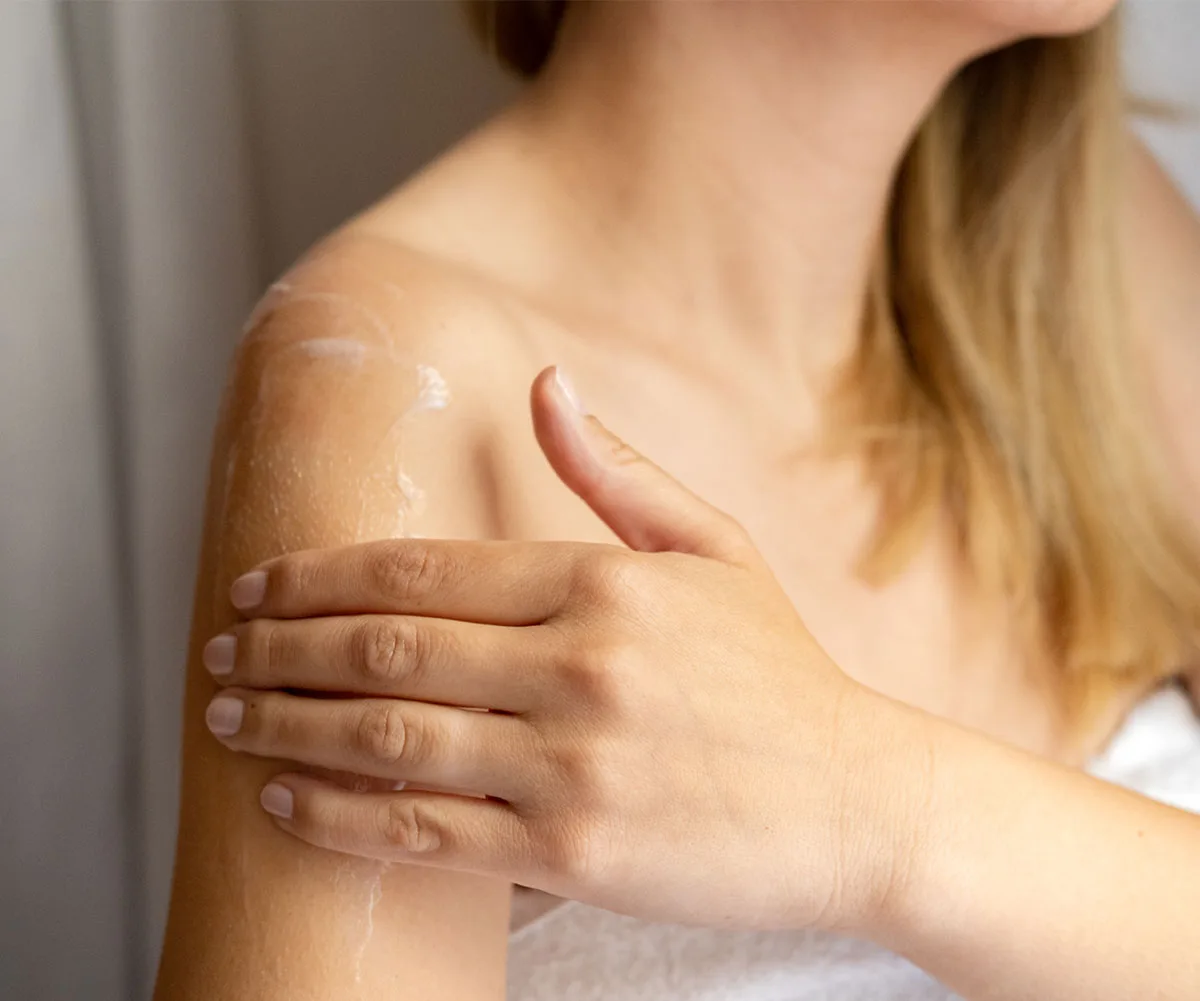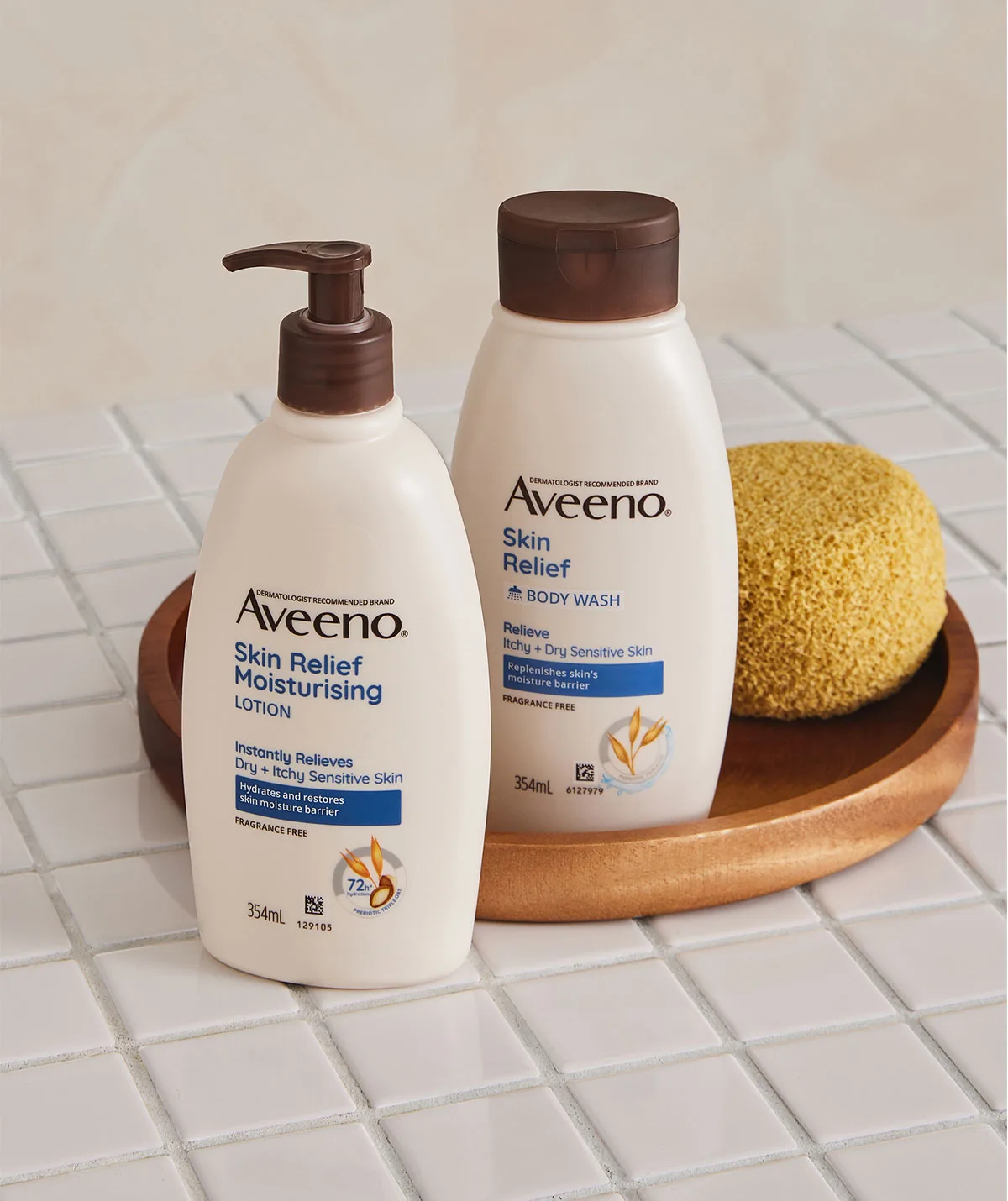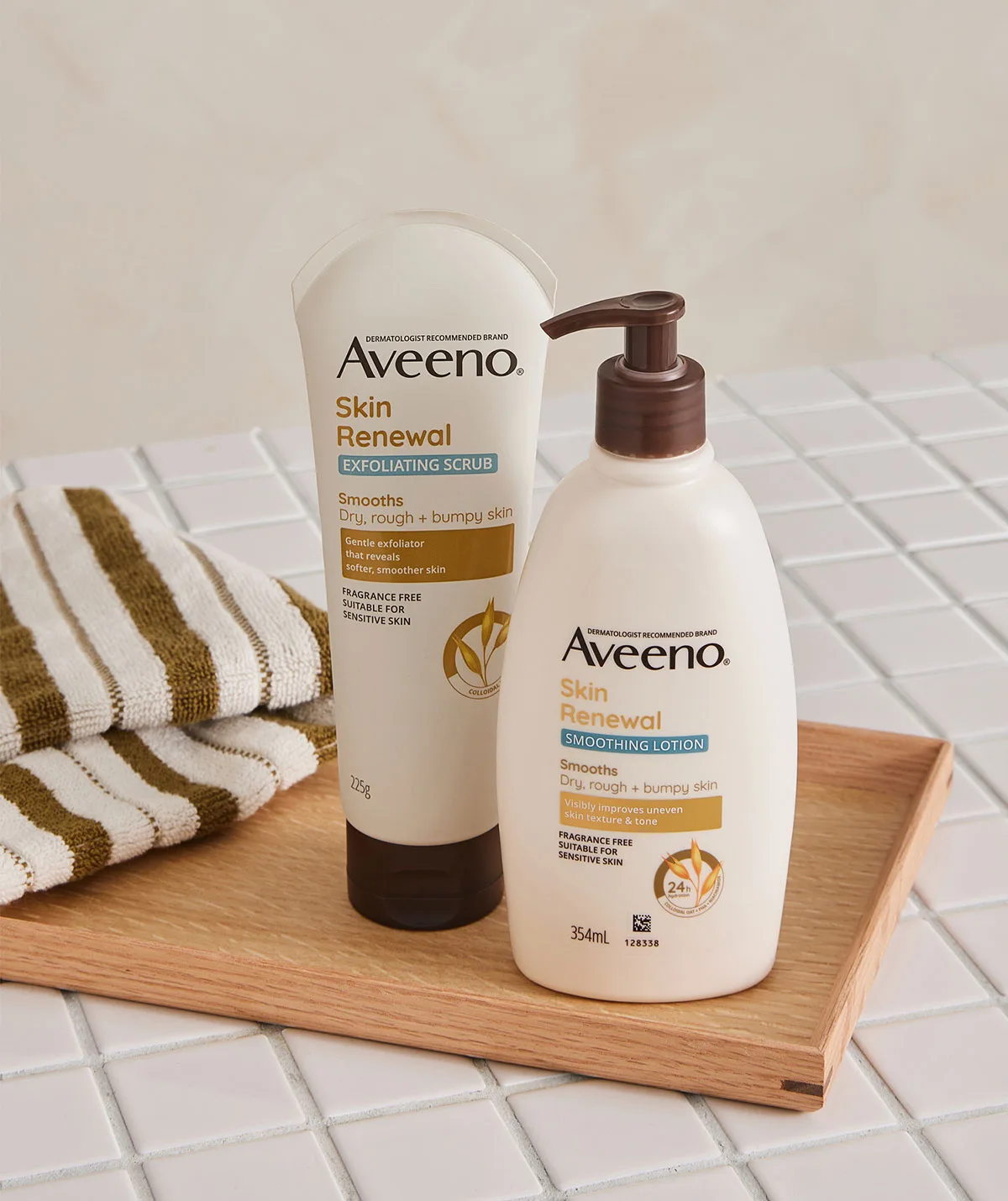Brought to you by Aveeno.
If you’re struggling with sensitive skin, you’re not alone.
In fact, 91 per cent of Australia consumers have sensitive skin†. So, what’s the best way to deal with this common—yet at times, confidence-rocking—problem?
READ NOW: Explore the science of sensitive skin (and the tips to revolutionise your routine)
We spoke to dermatologist Dr. Michelle Rodrigues for her science-backed tips on the best skincare products and ingredients to soothe and hydrate sensitive skin.
“The skin is the biggest organ of the body, and it really does protect us from the elements and it’s a barrier that needs to be strengthened and fortified,” she says.
“[My passion] is trying to help people achieve lifelong skin health, and helping patients who have existing skin problems, particularly those with pigmentary disorders and diverse skin types.”
But what actually causes sensitive skin?
Dr. Rodrigues says one of the most common causes of skin sensitivity is rosacea, a condition associated with flushing, burning, stinging and redness that can be exacerbated by the application of certain products.
“It’s very common, particularly in Australia, with the predisposing factors being genetics and environmental, like ultraviolet light and heat,” she says.
Another main cause of skin sensitivity? Irritation and allergies.
“That can start as dry skin and move to a condition called eczema or atopic dermatitis,” she says.
“Patients may notice breaks in the skin, itching, then rashes that develop into scaly, red rashes.
“In people with more richly pigmented skin, they might notice it as pigment or brown spots that appear on the skin in association with itching and discomfort.”
Here, she shares her top tips for how to care for sensitive skin (and yes, that includes your scalp!).
1. Stay hydrated
For Dr. Rodrigues, the biggest key in helping to combat dry or sensitive skin is to keep skin hydrated and moist.
“Whenever you’re washing the skin, washing your hands or having a shower, make sure the showers are short, the water is cool, and that you’re moisturising directly afterwards,” she says.

Using hydrating products and ingredients is a key part of soothing sensitive and dry skin, says Dr. Rodrigues. Image: Getty.
“The moisturiser should be fragrance-free, and thick enough to hydrate the skin but not too thick that it’s causing pimples.
“For those with really dry skin, it’s important to look for creams or ointments, because they are thicker, and they stick on the skin.”
It’s also important to seek out hydrating ingredients in other parts of our skincare routines, too.
“Where possible, use cleansers or soaps that don’t contain irritants or ingredients that strip moisture from the skin,” she says.
2. Use skin-loving ingredients
Another thing to look out for, she says, are products that contain ingredients specifically suited to sensitive skin, like colloidal oats.
“They are similar to regular oats, but really, really finely ground to the point where they create a powder,” she says.
“They bind to the skin and lock in moisture, giving it a better chance of rehydration because they moisturise the skin. They can also soften and soothe itching skin.
“[Colloidal oats] are great for those who do have dry skin because they can help balance out the pH of the skin.”
They’re one of the main ingredients in Aveeno’s Skin Relief range. Soap-free and ph-balanced, the gentle body wash and lotion are formulated with Prebiotic Triple Oat complex, with colloidal oat, oat extract and oat oil to help strengthen your skin’s moisture barrier.

Aveeno Skin Relief Lotion, RRP $17, and Body Wash, RRP $12.50.
The lotion delivers 72 hours of hydration*, soothing sensitive skin and moisturising within 20 seconds** and relieving itch in just 60 seconds.
3. Keep your routine simple
The mantra for sensitive skin? “Start simple,” says Dr. Rodrigues.
“Keep your routine simple and then gradually work up, if desired, in conjunction with your dermatologist or dermal clinician.”
For Dr. Rodrigues, the basics include a gentle hydrating cleanser and a hydrating, fragrance-free moisturiser.
And of course, she says, a good sunscreen.
“At the end of the day, sunscreen is one of the most important skincare components, helping to prevent skin cancer, skin ageing, hyperpigmentation and some skin conditions that can be caused by ultraviolet light,” she says.
“It’s important not just to look for SPF (which determines how much UVB is blocked) but one that also blocks UVA and is approved by the Therapeutic Goods Administration.”
For those looking to up the ante with their routines, she also suggests ingredients like vitamin B3, or niacinamide, known to visibly improve uneven skin tone.
Aveeno’s Skin Renewal range is formulated with niacinamide, along with Prebiotic colloidal oat and a natural PHA to smooth and hydrate rough, dry and bumpy skin.

Aveeno Skin Renewal Exfoliating Scrub, RRP $18, and Smoothing Lotion, RRP $19.
With multi-tasking power, the range has been specifically formulated for sensitive skin, improving skin tone and texture whilst moisturising.
4. Treat your haircare like skincare
Sensitive skin isn’t just limited to our bodies, with Dr. Rodrigues stressing that our scalp care is just as important to the health of our skin.
“Dermatologists are best placed to diagnose and manage sensitive scalp issues, which can arise from many conditions, the most common being seborrheic dermatitis or dandruff,” she says.
“There are other causes of scalp irritation, like things we put on our scalp that can cause allergies, like gels, sprays and in particular hair dyes.”
Be sure to protect and moisturise your scalp as you would your skin, with ingredients like colloidal oats that gently cleanse and hydrate, like Aveeno’s Oat Milk Blend Shampoo and Conditioner.
Brought to you by Aveeno.
† Based on a 2021 Consumer Study, n=150
** After four weeks of continuous use*
** Based on a consumer study, n=100











